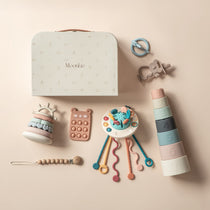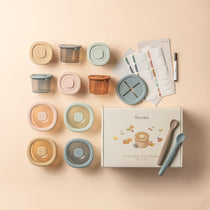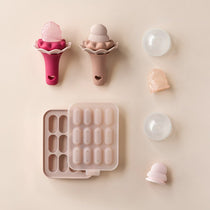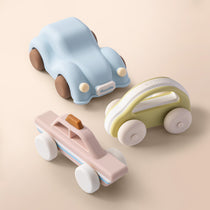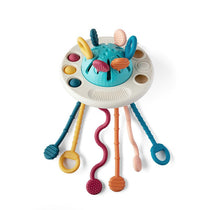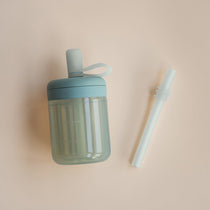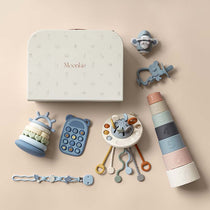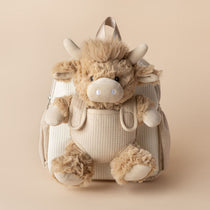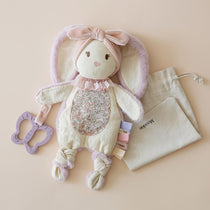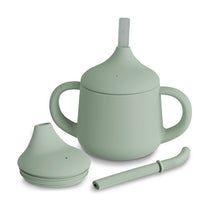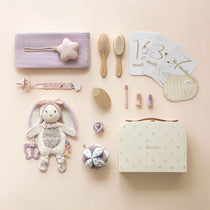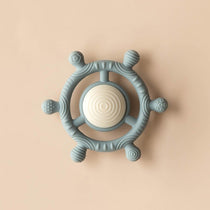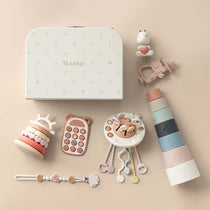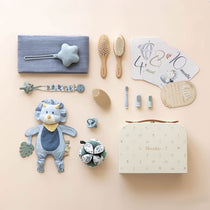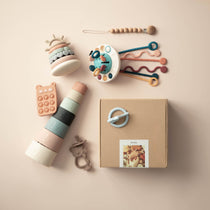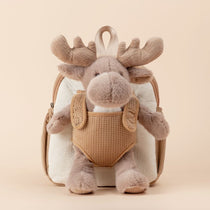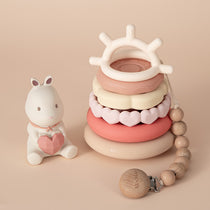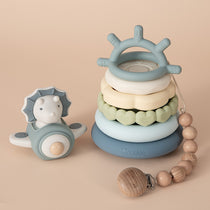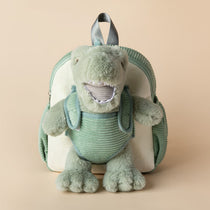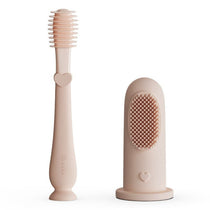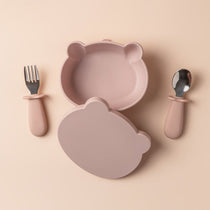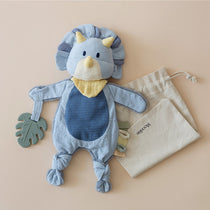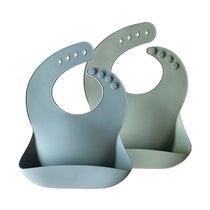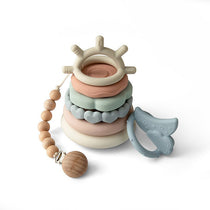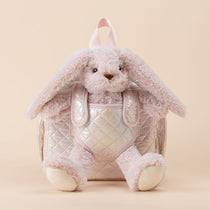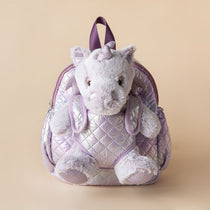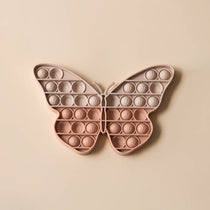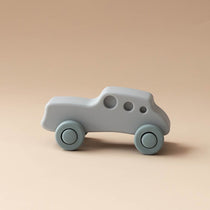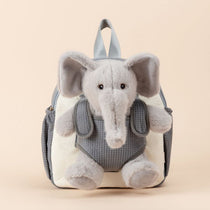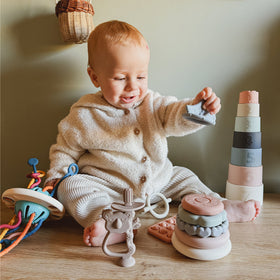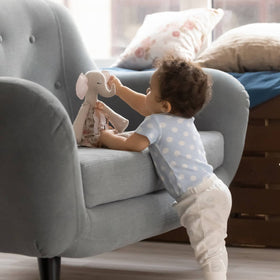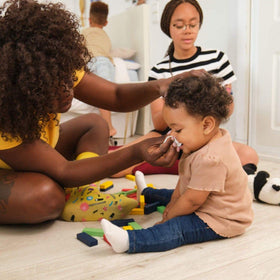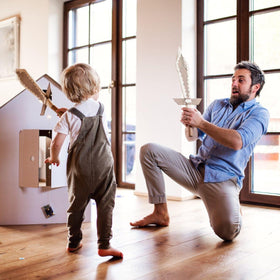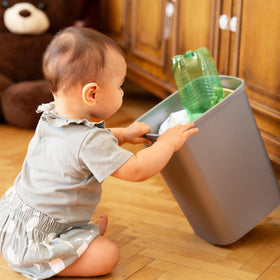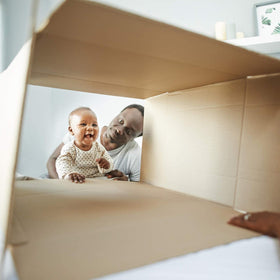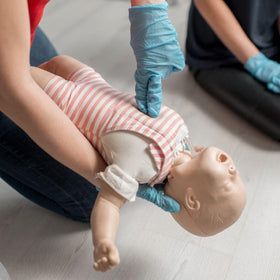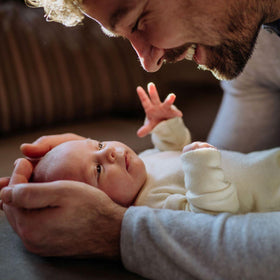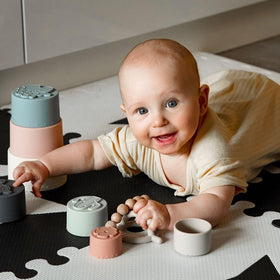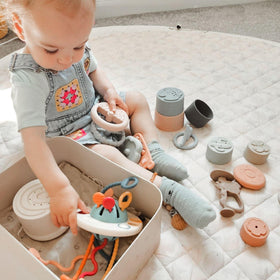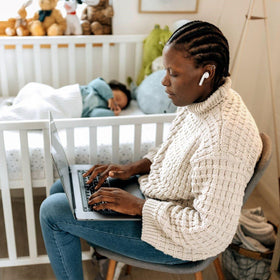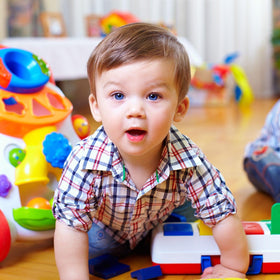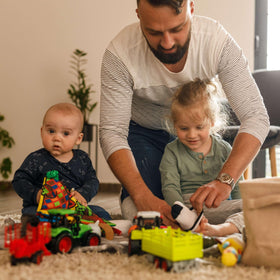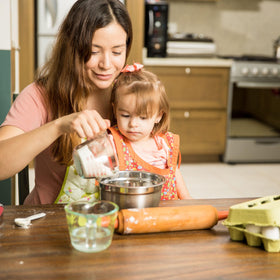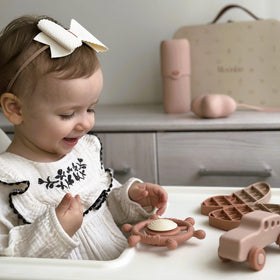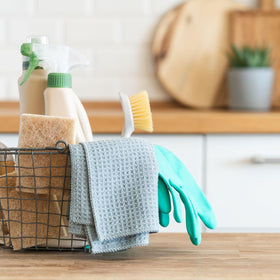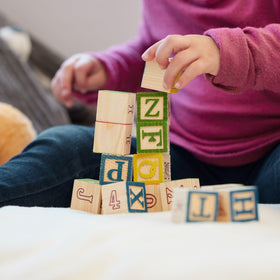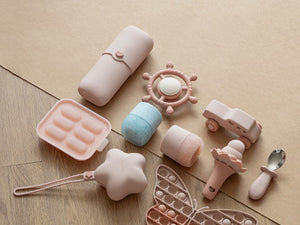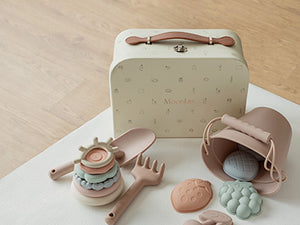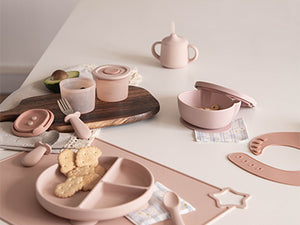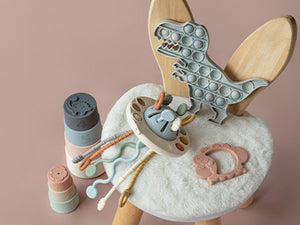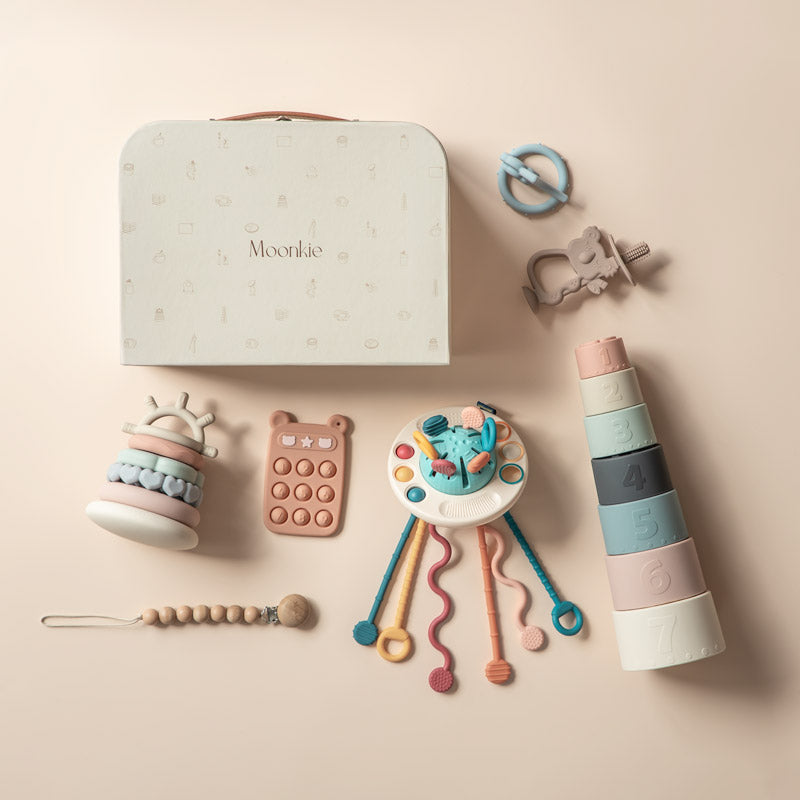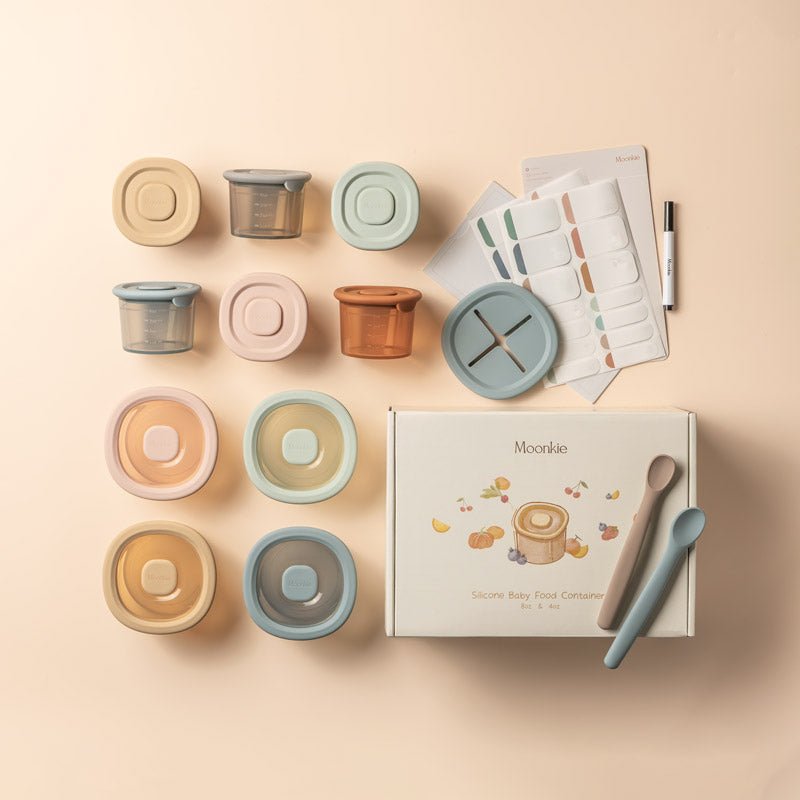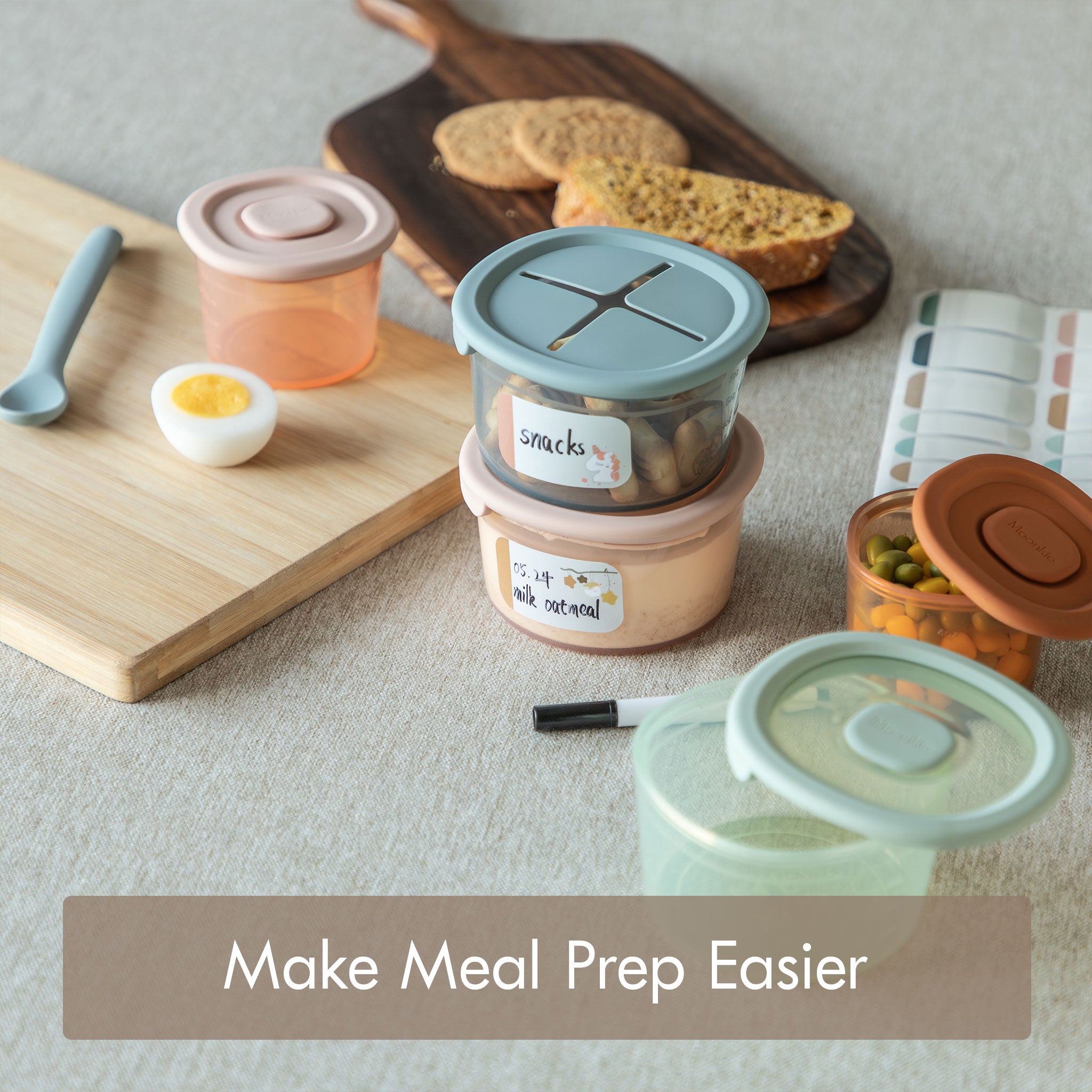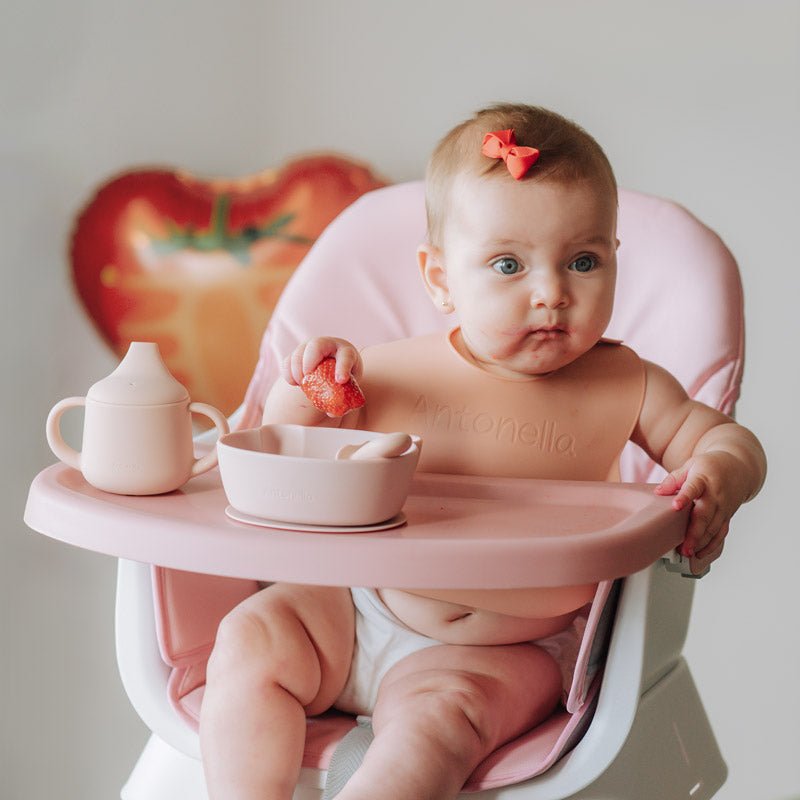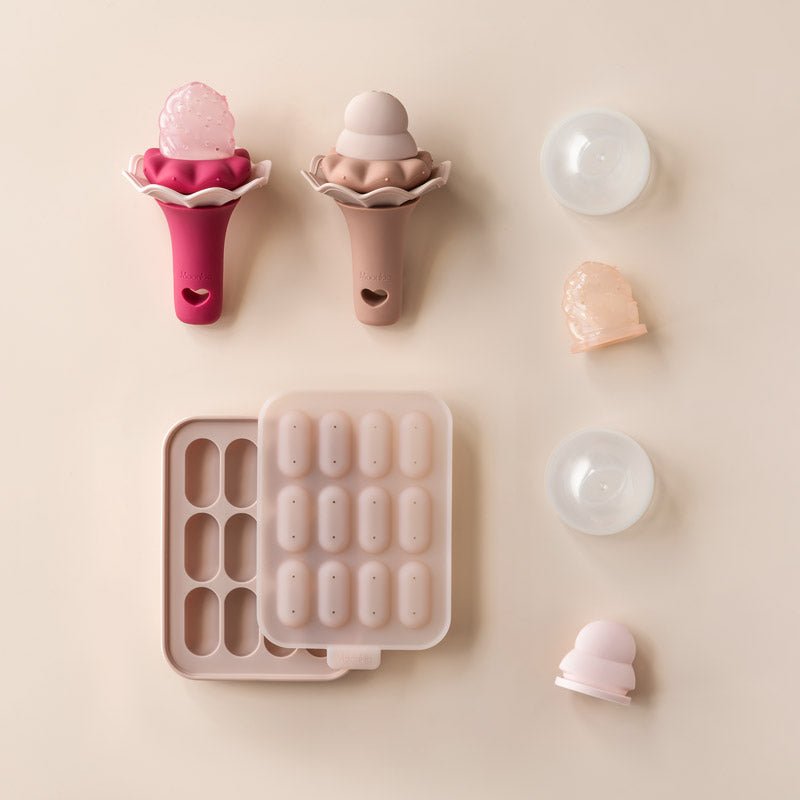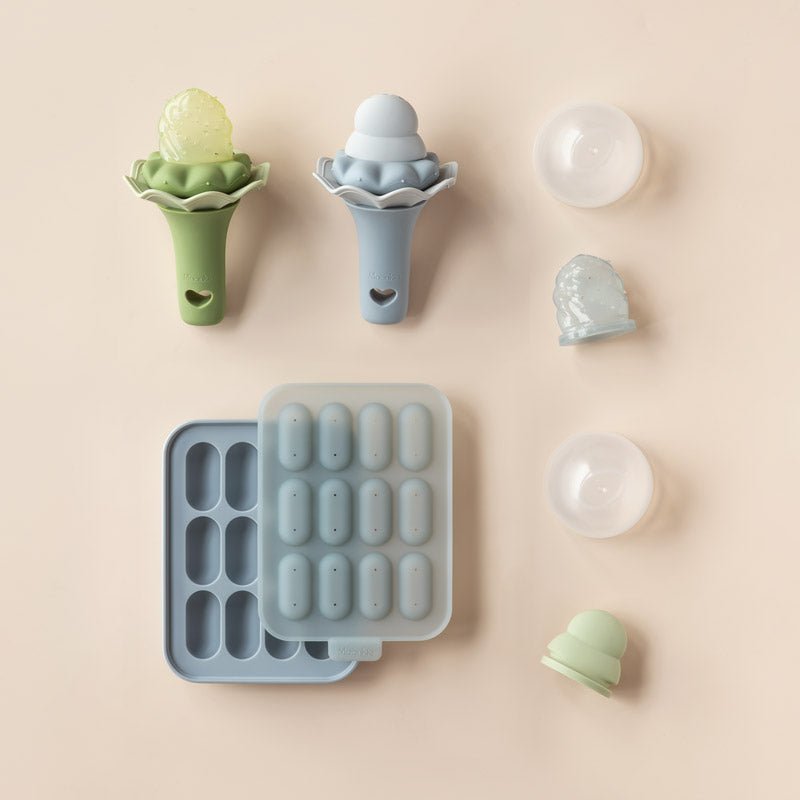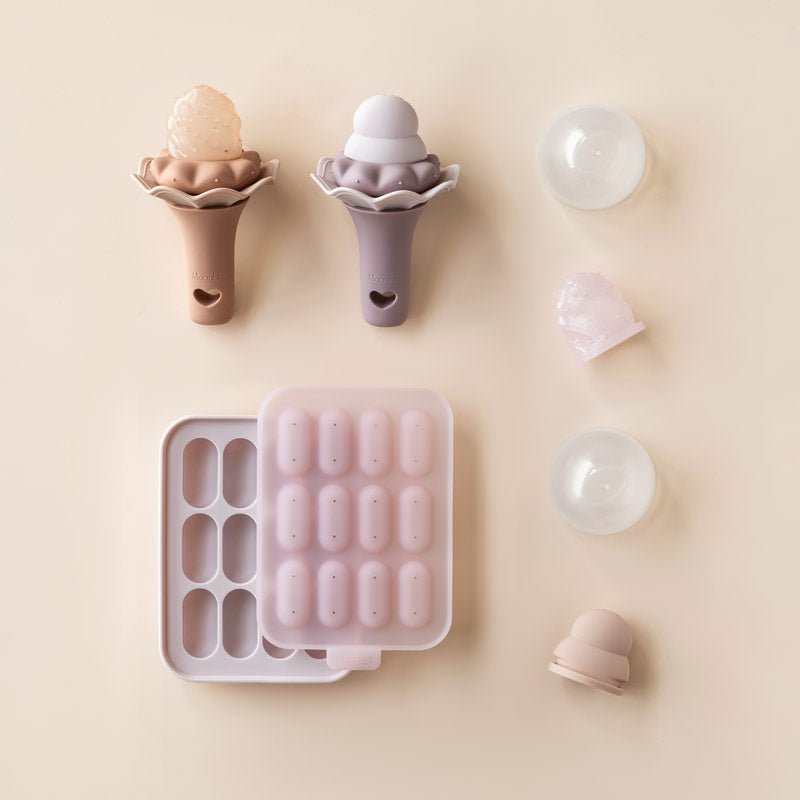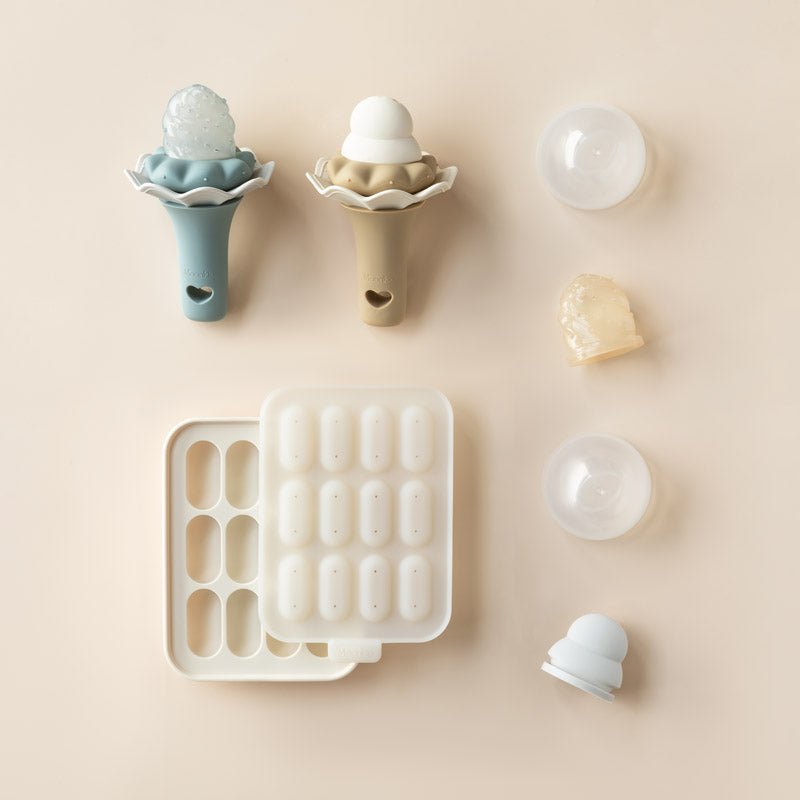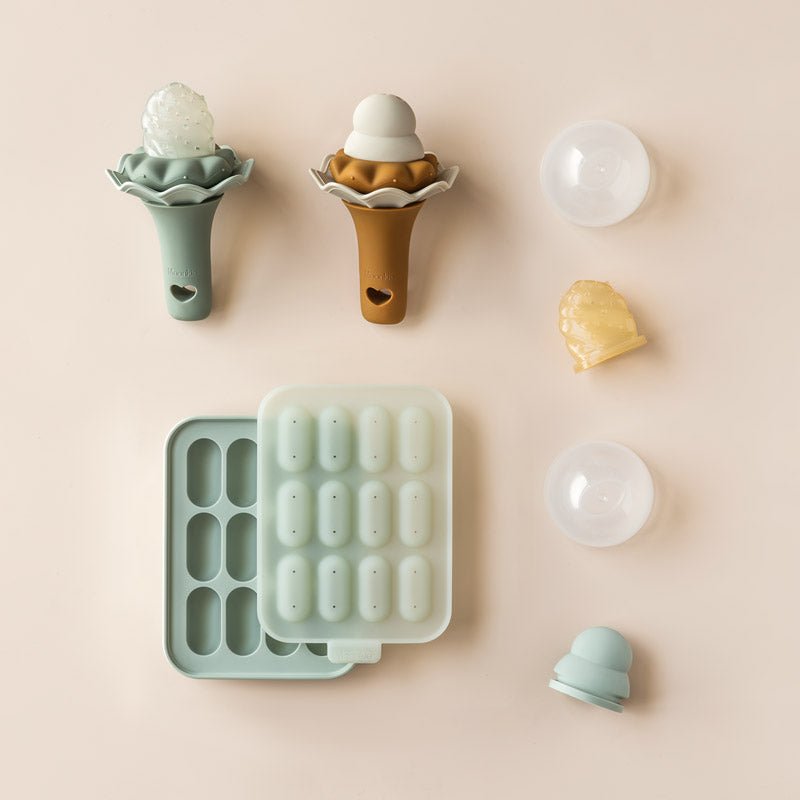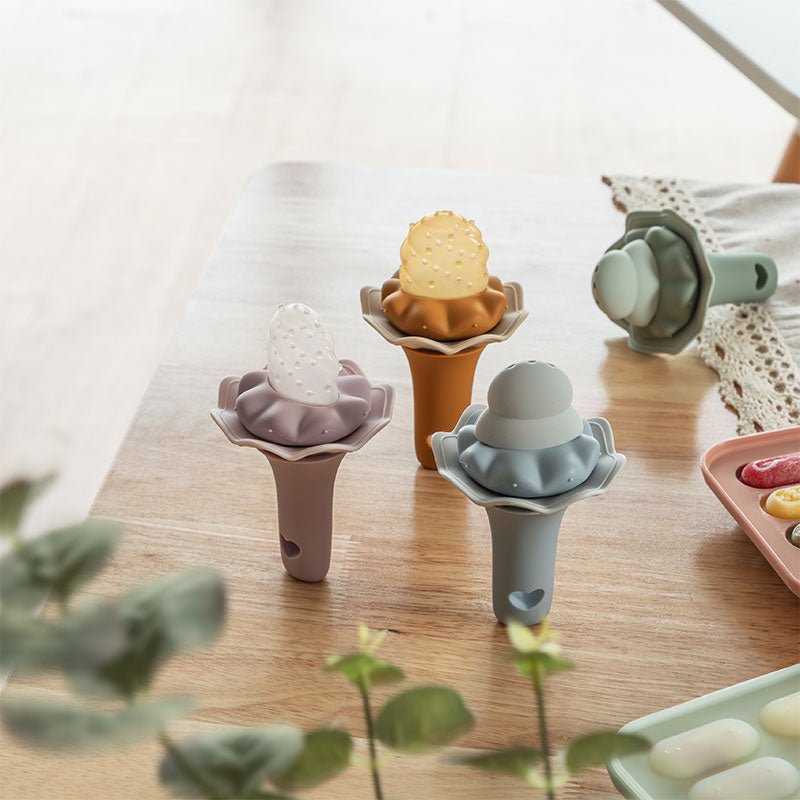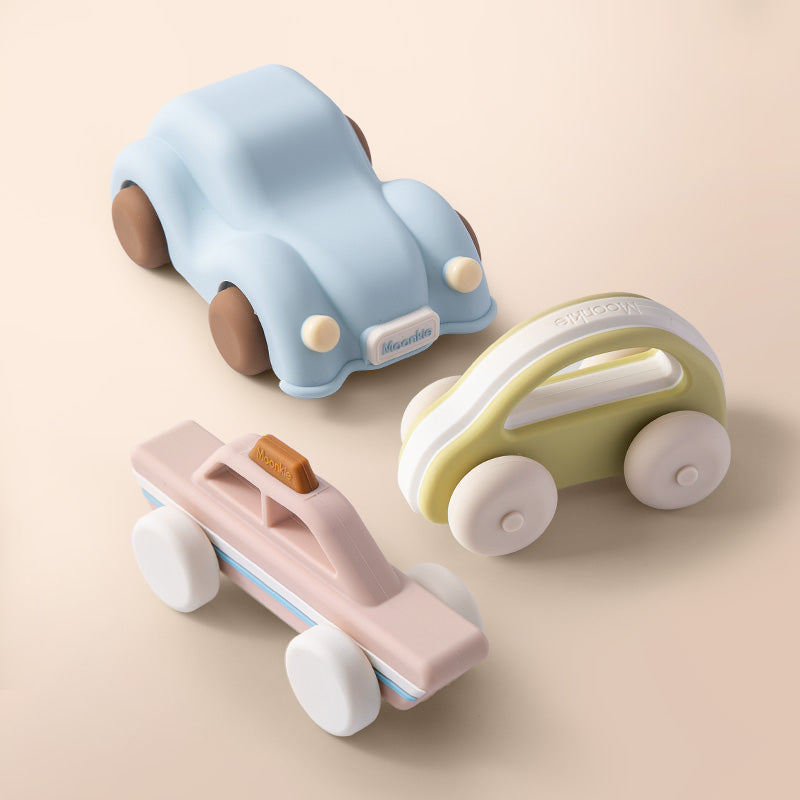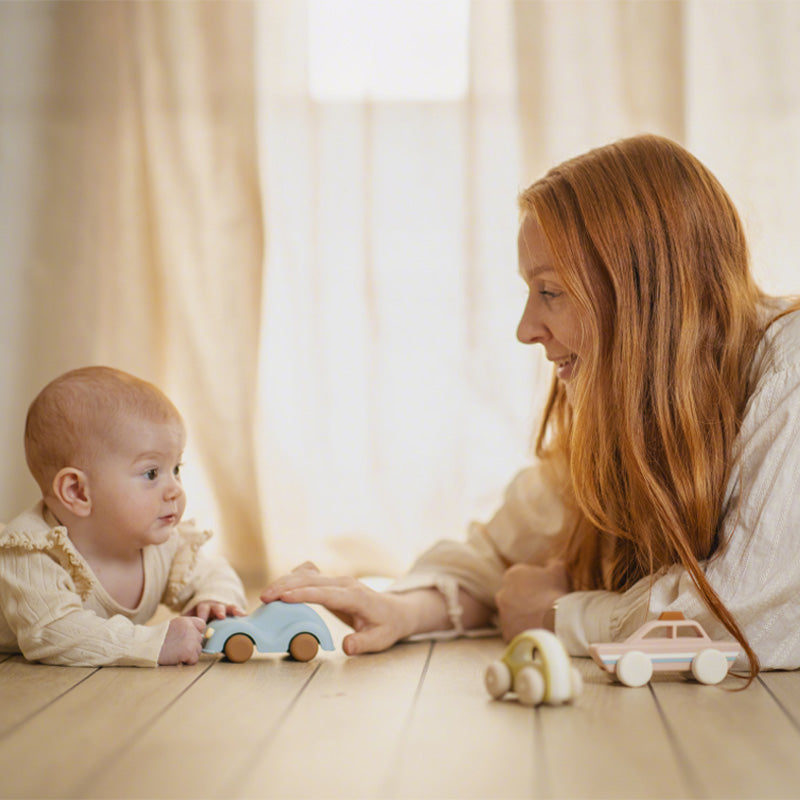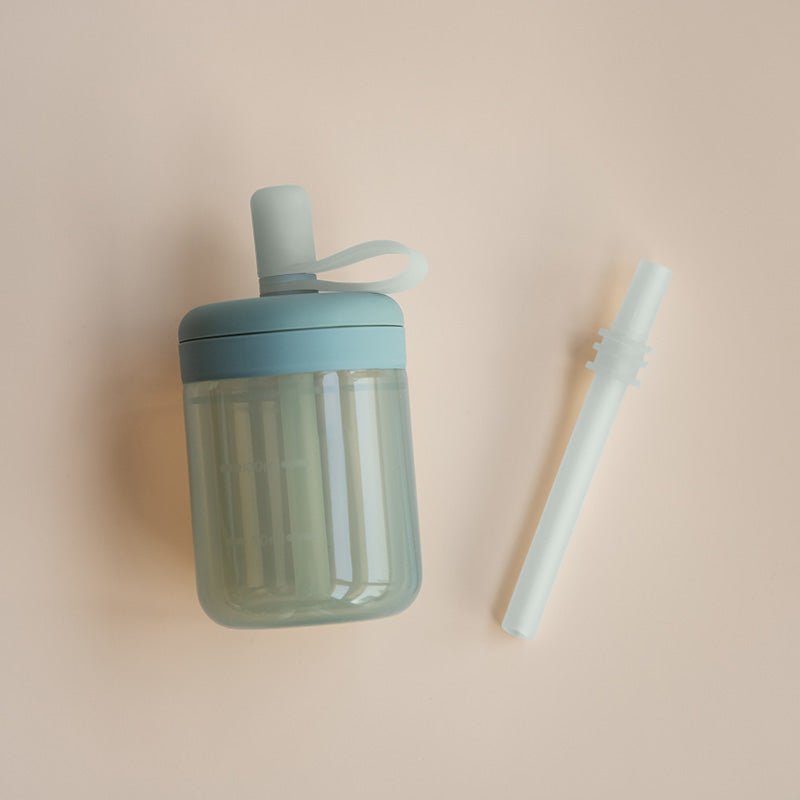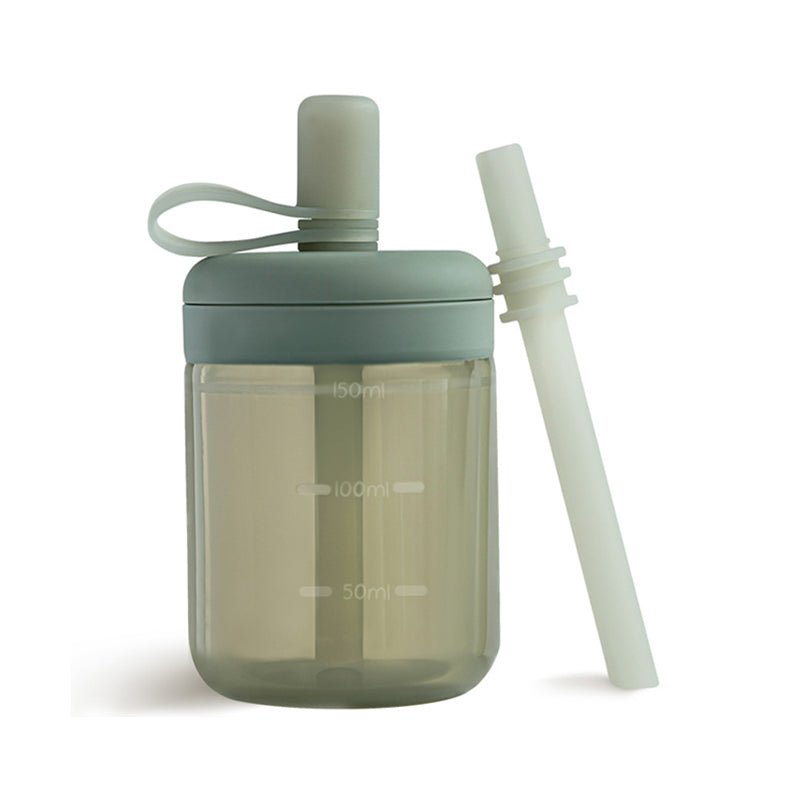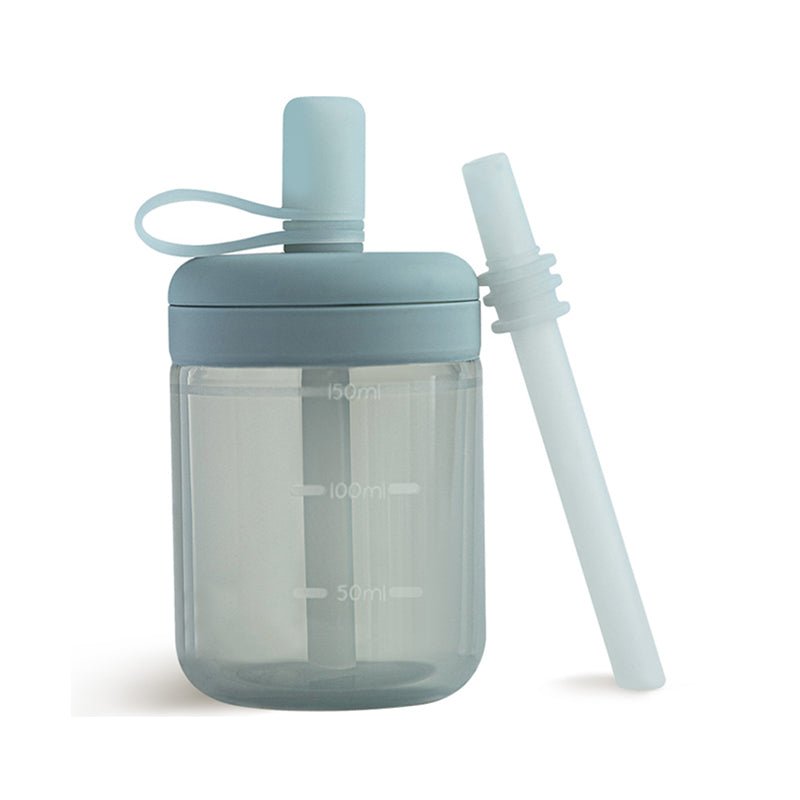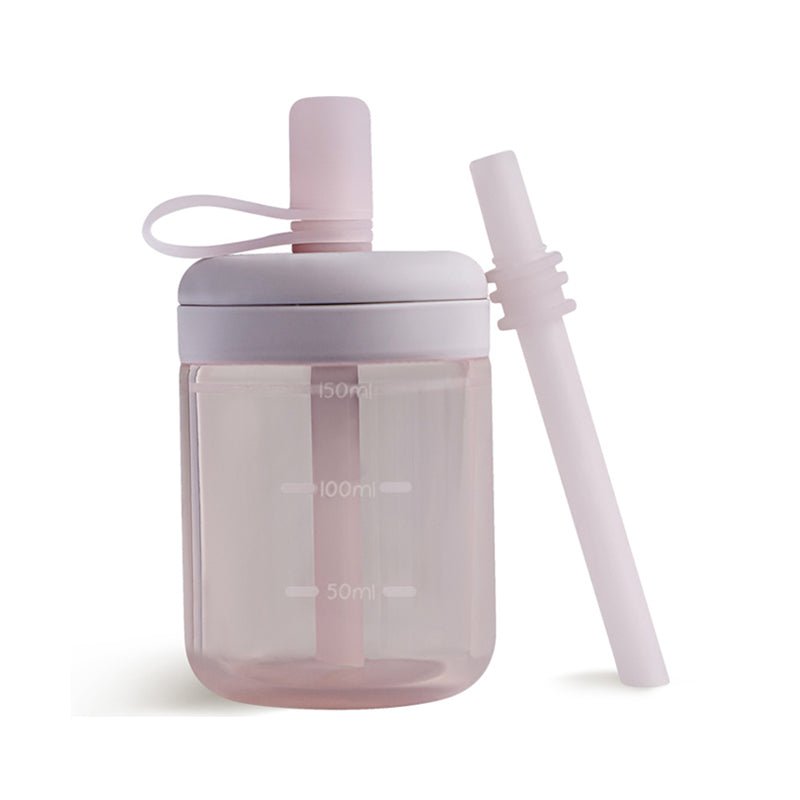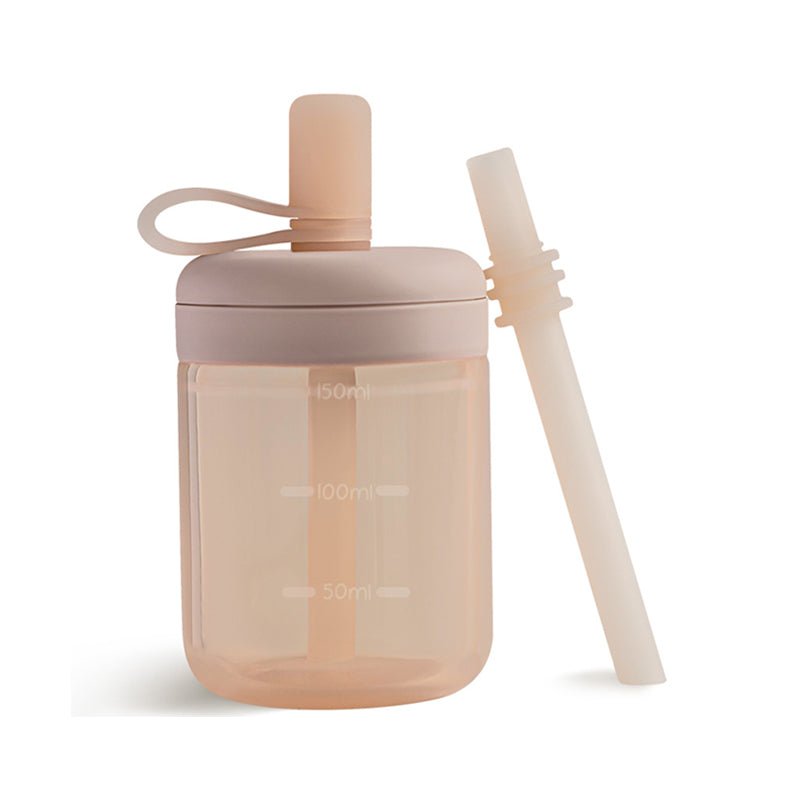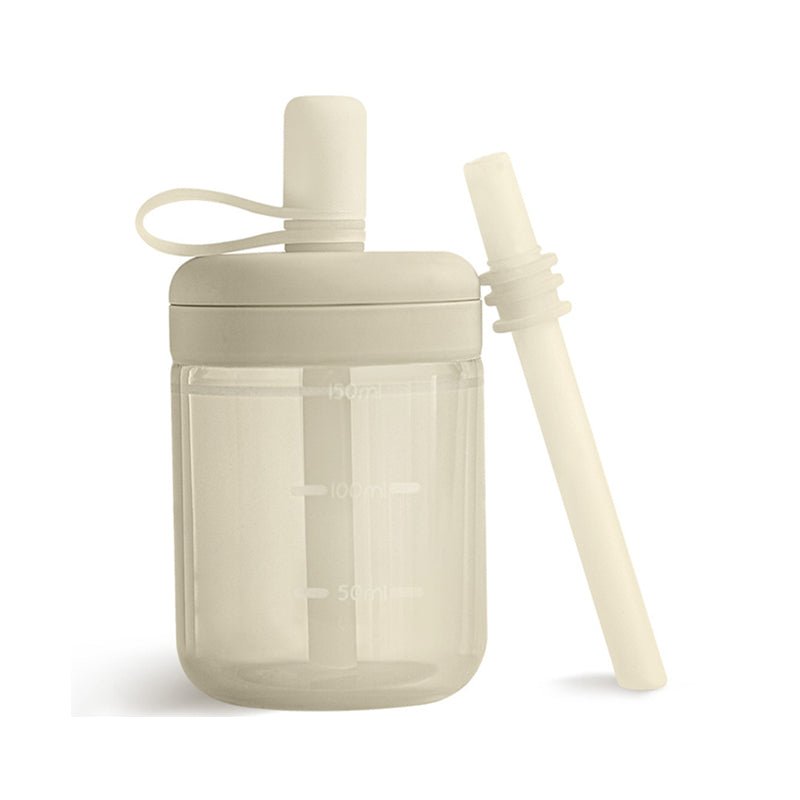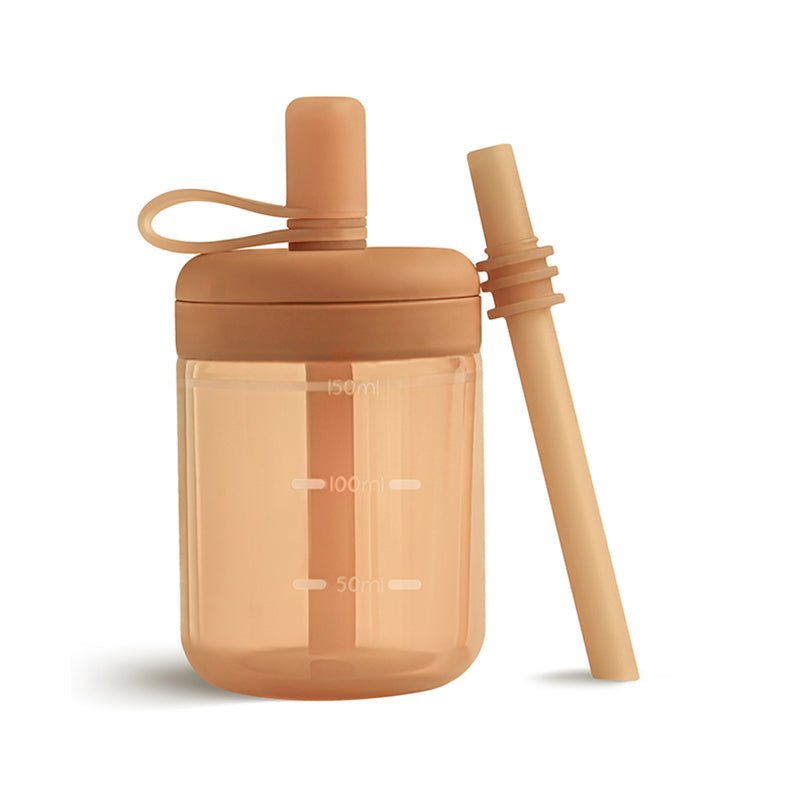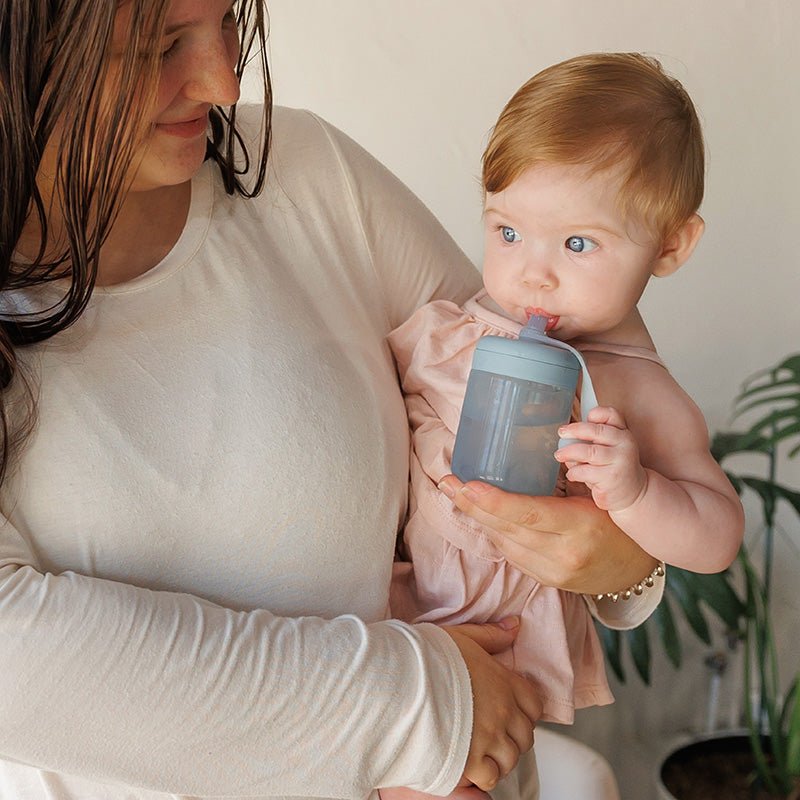Dads sometimes draw the short straw when it comes to advice about caring for their babies. Either they are told that they can't really do anything, or the task seems so insurmountable that they might get shunted with dish duty instead of caring for the baby.
First-time dads have a lot to adjust to, but they are essential to their baby's health, well-being, and development. The first step is being willing to ask questions. Then, it's being present physically, mentally, and emotionally to help out and love on the mom and baby.
Whether this is your biological or adopted baby, knowing what to expect and how to help is far less frustrating than being pushed to the sidelines. So, here are some questions I had as a first-time father and answers learned by experience.
1. How Do I Know My Baby Is Getting Enough to Eat From a Bottle?
When you are feeding your baby, check how much is in the bottle to begin with. You need to know where you started to determine if the baby has had enough. There are other signs for knowing whether a baby has gotten enough milk from a bottle.
A promising sign that the baby has had enough is if your little one refuses to eat from the bottle anymore.
What if the baby keeps chugging? Should you keep going? The answer depends on how much milk you have already given him. Too often, we dads go by the axiom "more is better," but the truth is that babies are learning, too. You must use other clues to decide if enough is enough.
Try feeling your baby's stomach by pressing gently on his abdomen. Obviously, a super-full baby will have a tight stomach.
Another test you can do is to listen for how wet the burp sounds as you burp your baby (you'll want a burp cloth for that). If it sounds really wet and the baby spits up, note how much that was from when you started feeding. If your baby still reaches for the bottle or tries to latch, he wants more.
2. What Should I Do If My Baby is Constipated?
Constipation in babies is a sensitive topic, mainly because it can make the baby uncomfortable and fussy. Generally speaking, you want to use a lot of movement to clear up the baby's digestive tract; however, if that's not working, you might consider employing juice (with your pediatrician's approval).
Is it okay to use an ounce of juice to unblock some stuck poop? Well, it depends on your baby's age, the problem's specifics, and your doctor.
When our kids were younger, our doctor told us to avoid juice. But several baby parents around us now have been instructed by their pediatricians to use watered-down prune juice to make the no-go poop go. Check with your baby's doctor to see if juice is suitable for your little one.
Besides juice, another tried and true method for moving stuck poop is pedaling your baby's feet. Lay your baby on his back and pedal his feet like he is riding a bike.
You can also bunch his feet together and gently push his toes to his nose (it's not a competition; he doesn't have to touch). By shifting his legs around, you are inspiring the blockage to move out.
3. What is Colic, and How Do I Help My Baby Through It?
There's nothing that makes a father feel frustratingly useless like a colicky baby. The secret to helping your colicky baby is to be patient. Unfortunately, colic is an endurance struggle for all those involved.

Colic is when your baby cries for more than three hours per day for more than three days. Babies will cry; however, if they cry too much, you might be tempted to find a perfect solution online to help.
The fact is that 30% of all babies struggle with colic (source). While there has been a lot of research on possible solutions, including probiotics, massage therapy, and even herbal tea, there hasn't been much success in finding a method that truly helps.
Unfortunately, in this case, laughter is not the best medicine. Instead, time is. Colic tends to become significantly less common for babies older than four months. So, if your baby is still crying after six months, you should probably talk to your baby's doctor.
4. What Are the Best Ways to Handle a Fussy Baby in Public?
When your baby starts screaming, the number one way to handle the situation is with grace. Understand that most people around you have probably experienced the same fussiness before.
Give yourself, others, and your baby a significant dose of patience when it comes to handling the situation.
Part of being patient means speaking calmly to your baby and trying to rock them gently. It can feel a bit odd for a man to talk softly to a person who is yelling and hitting them in the face, but the reality is that your baby might not know why they are crying either.
The more calmly you talk to the baby, the more likely the baby is to calm down, and others will understand that you are trying your best.
5. What Should I Do If My Baby Has a Diaper Rash?
Chaffing is no joke, and a diaper rash is often very similar. If you want to spare your baby's tears and yours, try to get some ointment on your baby's bottom ASAP.

In the past, we used a powder to keep baby bottoms dry, but there was a problem with this—babies tend to be a tad moist. So, putting a chalky powder on a baby becoming increasingly damp creates an even more sticky situation.
A tried-and-true method for helping with diaper rash is using some kind of ointment. The idea is to reduce friction and prevent moisture loss, which is a real problem for babies who are wiped several times a day.
6. How Can I Help My Baby with Congestion and Stuffy Nose?
A not-easy-to-breath baby is not a happy baby. While you can't control the weather, the air conditioning is the next best thing you can control. Try messing with your AC to see if you can use a dry mode or simply leave it running to dry and make the house a bit drier.
Sometimes it seems like your baby is just a fountain of joy, snot, and poop. The "easy" solution for congestion and a stuffy nose is to dry it up from the outside in. If you have a dehumidifier, now is the time to bust it out and see if that helps the congestion.
As a word of caution, though, babies like to be a little wetter than we adults do. If you dry them out too much, be prepared to deal with some dry skin. Come armed with our good friend, Aquaphor (it's magical).
7. How Do I Know If My Baby Is Experiencing Separation Anxiety?
Separation anxiety is a big word for some big feelings. While separation anxiety is a common thing for toddlers, it can happen to your baby, too. When it does strike, it often comes in the form of clinginess, crying, and even difficulty in breathing.
If you find that your baby is particularly clingy to you or his mom, you are looking at separation anxiety. Thinking about it from the baby's perspective, it makes sense. Your baby has constantly known the smell and sound of her parents. So, don't be surprised if you find that she cries more with your family or friends around the nine-month mark.
We've written a whole article on this topic, so check it out for pointers on dealing with separation anxiety: How to Handle Separation Anxiety in Your One-Year-Old.
8. What Should I Do If My Baby is Refusing to Eat?
When a baby doesn't eat, it can cause a lot of anxiety. No one wants their child to become malnourished, but sometimes, the lack of eating comes from a belly that says, "I'm full." The key is to be patient and to give multiple opportunities for food.

It's wild how babies grow. One day, they eat micro-sized portions, and the next, they claw at your fork for something more. However, their appetite gets bigger, and sometimes, it also gets smaller.
Even though they poop a lot, babies are actually pretty efficient in using the resources they consume. The weird part is that sometimes they grow in leaps and bounds, and other times they seem to almost stall in both growing and eating.
Just keep giving your little one chances to eat; sooner or later, your baby will be all grown up and eating you out of house and home.
If your baby displays other concerning signs of a problem (sleeping a lot, not focusing, crying more than usual, fever, cramping, not drinking, etc.) or goes hours without eating, call your pediatrician.
9. When is My Baby Ready to Swim?
Baby swimming is fascinating. There is a theory out there that since babies are formed in amniotic fluid and have a breath-holding reflex when you blow in their face, they can swim just fine; however, you might want to hold off on those swim lessons for a little longer.
According to the American Academy of Pediatrics, your child's swim lessons can start as early as one year old (source).
However, just because swim lessons can't begin until around the time your toddler is walking, it doesn't mean that you have to avoid the swimming pool entirely. You can even do some heavily supervised trials during bath time; just don't rush things.
10. Can My Baby Watch TV?
Screen time has been perhaps the single greatest controversy for parenting in recent times. While it can be tempting to let your little one watch something while you get chores done, it's best to keep the screen time as close to zero as possible.
Many studies suggest that screen time has a negative effect on children's brains if they spend more than an hour watching TV (source, source). For young children, the line is drawn at no more than 30 minutes of quality programming (source).
The American Academy of Pediatrics states that children 18 months old and younger should have zero screen time (source)!
But why? Babies make millions of neural connections every second and learn lessons that we adults take for granted (like how ceiling fans are magical creatures).
Frankly, if you put a phone or the TV in front of a baby, she will sit there like a teenage zombie with a phone. We don't need to start that yet; it will come in time.
Just keep little ones under 18 months busy with toys or wear them when you've got to get stuff done. Though they can technically watch 30 minutes of TV, toddlers are a lot happier in the long run when they don't sit still for hours. They need to spend all that energy you don't have!
11. When Should I Start Giving My Baby Real Food?
Many parents can be nervous about giving their baby solid food, but as with many things, babies are pretty good at telling others they want to try eating "real food." The secret to giving solid food is eating regularly around your baby to show them what real food really looks like.
There's an obvious caveat to giving your baby solid food: Make sure it's in a smooth puree. You shouldn't give them chunks of your steak to gnaw on, however much he's asking for it!
Instead of setting a hard date to begin, try watching your baby at five to six months old and slowly introduce him to purees as his interest piques. Expect a messy table and stinkier diapers!
12. How Can I Balance Work and Family Life After Becoming a Dad?
Work-life balance is perhaps the most significant stress for young families. The best way to rebalance it all when your little one arrives is to reevaluate what is truly necessary. Remember that raising kids will take more time and energy than you think.

Parents are infamously known as sticks in the mud when going out and having fun with their friends. There are new boundaries on how long you can be out, where you'll go with a baby, and how much you can do.
While your child certainly doesn't have to dictate what you and your family do every second of the day, as a dad, you must reevaluate what is crucial for you and your family (which will probably entail fewer game nights with the buds).
13. How Can I Support Her During the Postpartum Period?
If this is your first time being a dad or your fourth baby, the best thing you can do for your little one's mommy is to be present. Postpartum depression always looms on the horizon for new moms, especially when it comes to being separated from a lot of the fun parts of life because she has to feed the baby AGAIN.
As a new dad, the most loving thing you can do is keep your ears and eyes open for other ways to help. It also helps to keep your sleeves rolled up to change your fair share of diapers. If you want to know more about postpartum depression, read How to Bond with Your Baby When You're Struggling with Postpartum Depression.
14. What Are Some Ways I Can Bond With My Baby?
As a dad, there are many things that you can't do or give to your baby; however, while you can't provide them with milk, you can give them your time and attention.
Babies are constantly learning. Perhaps the best thing you can do for your baby is play with them. Find some blocks or stacking cups, sit down, and build something in front of your baby. Knock it down for kicks and giggles, and do it over again. Babies love the mayhem!
Thankfully, as a dad, you are more than just a playmate. Make sure you spend time holding your baby, making faces, and talking to her.
Some dads might think this is too silly, but your baby likely knows your smell and feels safe and familiar with you from that first month (which is crazy!). You should frequently show your baby your face, speak to her as early as possible, and show her around.
We've got more on why dads are awesome for their babies and how to bond with them in Bonding with Your Baby: Why Dads are Just as Important as Moms.
15. How Much Do I Actually Have to Give Up?
Being a dad is a big job, and frankly, you will probably have to give up more than you expected. However, as with all things, there is give and take.
Will you have to give up going out with your buds every Friday? Probably not. Are you going to have to give up the dignity of not slapping a person in the face after they spat on you? Very likely.
There is actually a lot of flexibility in schedules when it comes to being a new dad. You will probably have to wake up a bit earlier, and you might take more naps than you used to, but newborns are actually surprisingly transportable.
Just make sure that you double-check with the boss before you take your baby to the golf course!
16. How Long Should My Baby Cry Before I Respond?
Babies need to learn to self-soothe at an early age. If not, you will fight a losing battle for a long time. However, just because it's not bad for you to let your baby cry for a bit, you should still ensure that you are there and know what kind of crying is happening.

It's tough to put a hard number on how long to let your baby cry due to two reasons. The first one is colic, which is largely untreatable. The second reason is because each child is different.
Generally speaking, if your baby is making a "sad cry," you can let him "cry it out," stepping in if it goes longer than a few minutes or increases drastically. But you must respond quickly if your baby is making a "scared" or "hurt" cry. In any case, your baby needs to be in a safe space.
This may seem like a hard balance full of confusion and nuances, but the reality is that as you get to know your baby, the decision to go into the room or not will get much easier.
However, parents choose to go different routes for a baby's crying. Some use a pacifier, while some respond to every whimper. Some rock their baby until they stop crying, and yet others will respond after a set timer.
Whatever way you choose to handle crying, ensure you and your partner are on the same page and have a plan for different types of crying.
17. When Should I Start "Baby-Proofing" the House?
Knowing when to start baby-proofing can be challenging: toddlers toddling, babies rolling, or "nesting." Generally, you want to start low and go up as your baby's abilities grow.
You should know even at the beginning that you will never fully baby-proof your house. One amazing fact about babies and children is that they are great at finding new and unique ways to get themselves in trouble.
As a result, you need to keep your eyes on what your baby can do so that you can guard problem areas as they come up.
18. Am I Giving My Baby Enough Attention?
The short answer is no. You are likely not giving your baby enough attention. Babies and young children do better with more attention.

The longer answer is that babies' brains are constantly learning. As a young parent, you are likely being asked often to do work of some sort. Life doesn't stop, and neither does your baby's development.
The secret to giving your baby "enough attention" is to ensure you strike a sustainable balance for your life. It does no good to spend 60 hours with your baby, especially if you are passed out all those hours because you don't have any energy to spend.
19. How Can I Get the Baby to Sleep Longer?
There are a few secrets to getting more sleep for both you and the baby. Basically, it comes down to knowing your baby's schedule and solving problems before they start.
For example, as your baby grows, you will find that they need to use the bathroom less and less frequently. If you can ensure they have used the bathroom before you try to put them down for a nap, they will likely sleep longer.
What's more, many children like to be swaddled or like the temperature to be warmer than we might. Another thing is to turn on some kind of white noise in your baby's room (box fan, noise machine, soft music), but avoid being super quiet in the rest of the house, or you will always have to tip-toe.
The secret to all of these is to know what your baby likes and allocate time for that BEFORE you try to put them down for a nap.
20. Am I Good Enough?
While postpartum depression among women is a commonly researched phenomenon, the fact is that new dads also have a variant of these negative feelings that mostly revolve around the question: "Am I good enough?" The good news is that the answer is a resounding "Yes!"

Nobody is perfect, and in some ways, a new dad's mental struggles with having a new baby have fallen by the wayside.
The fact is, every new dad is going to make a lot of mistakes; however, the results of families without a father range from poorer cognitive abilities to increased risk of socio-emotional problems later in life (source).
Fathers are necessary in the family's life. It's not that moms cannot do a fantastic job on their own; it's that parents working together create a stable environment as they help each other do this kid thing well.
Men struggle in life, too, but new dads make a far more significant positive impact by being present with their families and participating.
21. Are Mothers More Naturally Caring Than Dads?
Whether or not mothers are actually more caring depends mostly on your stance on nature vs. nurture. While one's own empathy is certainly affected by the environment one was raised in, one element is consistent across the board regarding empathy and care: the higher the empathy, the greater the responsiveness.
Children need care, and fathers tend to get a bad reputation regarding child care and empathy. However, responsiveness tends to manifest itself in terms of how one cares for the baby.
Thus, the solution to the problem is not to push the caregiving task to the mom but to increase the dad's empathy, which means getting involved in significant milestones, such as ultrasounds, births, feedings, etc.
Don't sit out because you are "not equipped" for children. You are equipped to provide and protect, which you cannot do if you don't invest your time and effort to be there for the "little" things.
22. Is Black Poop From My Baby Normal?
When babies are born, their first poops are made up of black, tar-like stuff called meconium. Before you freak out, know that it is incredibly normal unless it happens to be in the wrong place.
While it certainly can be weird and slightly alarming to see tar come out of your precious one, there is actually no problem with it winding up in your newborn's diaper. It will pass within a few days as your baby starts nursing and adjusting his system to the outside world.
Now, I will say that cleaning it off your pants is another challenge entirely.
23. When Should I Start Reading Books To My Baby?
Some people ask, "Why bother?" when it comes to reading books to their babies, but a better attitude should be, "Why not?" As far as age goes, there is no restriction on starting to read books to your babies, even when fresh out of the womb.
The trick to reading books to your baby is to start them on board books. There's no point jumping into a chapter book if all your baby will see are pieces of paper with scribbles. Try picking up some children's classics like Dr. Seuss, Brown Bear, Brown What Do You See, The Very Hungry Caterpillar, etc.
24. When Can My Baby Sleep by Themself?
Whether your baby is three months, six months, or a year old, the main principle to apply when moving the baby into another room is that you and your significant other must be on the same page.

In short, the main line of reasoning revolves around sleep quality issues. Generally speaking, fathers need to understand that the mom may sleep better when she is able to roll over and check on the baby, especially if the baby is not rolling over on her own yet.
However, another element is that having the baby in the same room but in a crib or a bassinet might stress out the parents even more. Whatever you choose, listen to baby's mom, even if it might mean waiting to transfer the baby to the nursery. If investing in an excellent baby monitor will ease tensions, it's worth the investment!
25. Is It Normal for Babies to Sleep in Bed with the Parents?
Statistically, it is incredibly normal for a baby to fall asleep next to or on top of their mother, sometimes up to 80% (source). Despite this, parents should be careful about allowing their baby to fall asleep with them.
While many people talk about the risk of rolling onto one's baby, there is another risk that should be assessed: sleep. For some parents, having a baby in bed means that every twitch and sound the baby makes is felt, often resulting in a lower quality of sleep.
When a baby sleeps in the bed with the parents, both the child's and parent's health need to be taken into account. Make sure that you and your significant other are on the same page regarding sleeping arrangements.
In a Nutshell
If you are a new dad or about to be, congratulations! This journey is unlike anything you have done or will do in life, and it will push you to be a better man all around. Just stay patient, be present physically and mentally, and communicate. Enjoy every bit of it because it will be gone before you know it!

